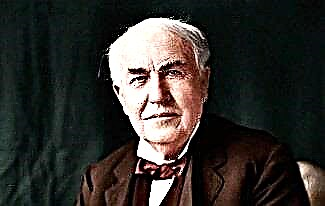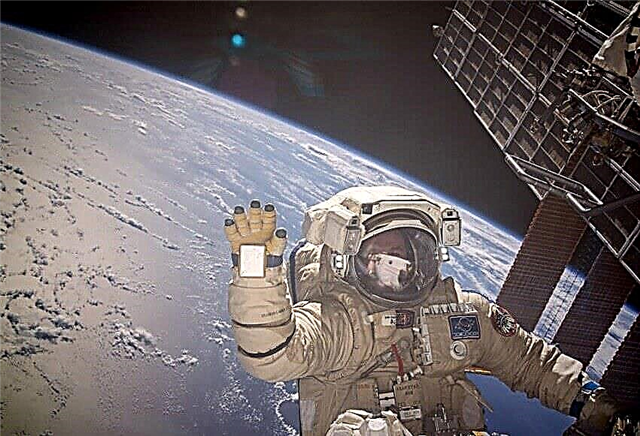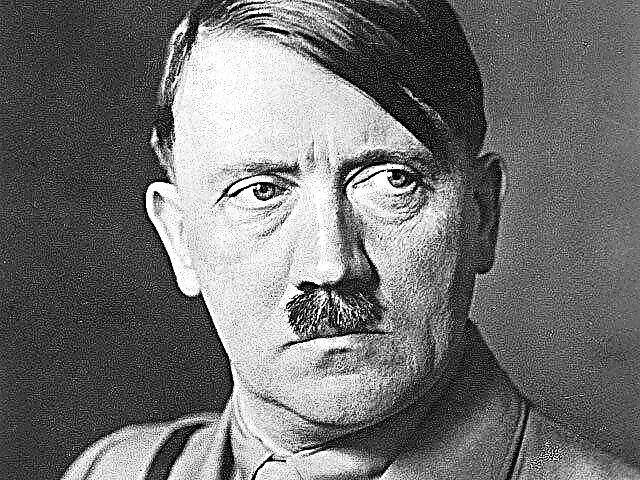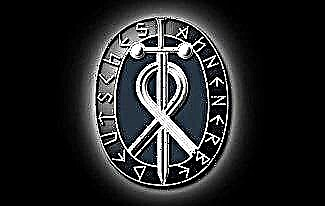Non-aggression pact between Germany and the USSR (also known as Molotov-Ribbentrop Pact or Hitler-Stalin pact) - an intergovernmental agreement signed on August 23, 1939 by the heads of the departments for foreign affairs of Germany and the USSR, in the persons of Joachim Ribbentrop and Vyacheslav Molotov.
The provisions of the German-Soviet pact guaranteed peace between both sides, including a declared commitment that neither of the 2 governments would enter into an alliance or help the enemies of the other side.
Today the Molotov-Ribbentrop Pact is one of the most talked about historical documents in the world. In many countries, including Russia, on the eve of August 23, an active discussion of the treaty between the largest leaders of the then world - Stalin and Hitler begins in the press and on television.

The Molotov-Ribbentrop Pact caused the outbreak of World War II (1939-1945). He untied the hands of fascist Germany, which set out to subjugate the whole world.
In this article, we will look at interesting facts related to the contract, as well as the main events, presented in chronological order.
Pact of war
So, on August 23, 1939, Germany, under the leadership of Adolf Hitler, and the USSR, under the leadership of Joseph Stalin, concluded an agreement, and on September 1, the bloodiest and most large-scale war in human history began.
Eight days after the signing of the Pact, Hitler's troops invaded Poland, and on September 17, 1939, the Soviet army entered Poland.
The territorial division of Poland between the Soviet Union and Germany ended with the signing of a friendship treaty and an additional secret protocol to it. Thus, in 1940 the Baltic states, Bessarabia, Northern Bukovina and part of Finland were annexed to the USSR.
Secret additional protocol
The secret protocol defined the "boundaries of the spheres of interest" of Germany and the Soviet Union in the event of a territorial and political reorganization of the regions that are part of Finland, Estonia, Latvia, Lithuania, and the Polish state.
According to the statements of the Soviet leadership, the purpose of the agreement was to ensure the influence of the USSR in Eastern Europe, since without a secret protocol the Molotov-Ribbentrop pact would lose its force.

According to the protocol, the northern border of Lithuania became the border of the spheres of interests of Germany and the USSR in the Baltic States.
The question of Poland's independence was to be resolved later, after discussion of the parties. At the same time, the Soviet Union showed a particular interest in Bessarabia, as a result of which Germany did not have to lay claim to these territories.
The pact radically influenced the further fate of Lithuanians, Estonians, Latvians, as well as Western Ukrainians, Belarusians and Moldovans. Ultimately, these peoples were almost completely part of the USSR.
In accordance with an additional protocol, the original of which was found in the archives of the Politburo only after the collapse of the USSR, the German army in 1939 did not invade the eastern parts of Poland, inhabited mainly by Belarusians and Ukrainians.
In addition, the Nazis did not enter the Baltic countries. As a result, all these territories were taken under the control of the Soviet Union.
During the war with Finland, which was part of the Russian spheres of interest, the Red Army occupied part of this state.
Political assessment of the pact
With all the ambiguous assessments of the Molotov-Ribbentrop Pact, which today is sharply criticized by many states, it must be admitted that in reality it did not go beyond the framework of the practice of international relations adopted before the Second World War.
For example, in 1934 Poland entered into a similar agreement with Nazi Germany. In addition, other countries tried to sign similar agreements.

Nevertheless, it was the additional secret protocol that was attached to the Molotov-Ribbentrop pact that undoubtedly violated international law.
It is also worth noting that from this agreement the USSR received not so much territorial benefits as an additional 2 years of time to prepare for a possible war with the Third Reich.
In turn, Hitler managed to avoid a war on two fronts for 2 years, successively defeating Poland, France and the small countries of Europe. Thus, according to a number of historians, Germany should be considered the main party to benefit from the pact.
Due to the fact that the terms of the secret protocol were illegal, both Stalin and Hitler decided not to make the document public. An interesting fact is that neither Russian nor German officials knew about the protocol, with the exception of an extremely narrow circle of people.
Despite all the ambiguity of the Molotov-Ribbentrop Pact (meaning its secret protocol), it should still be viewed in the context of the current military-political situation at that time.
According to Stalin's idea, the treaty was to serve as a response to the policy of "appeasement" of Hitler, pursued by Great Britain and France, who were trying to push their heads against two totalitarian regimes.
In 1939, Nazi Germany took control of the Rhineland and, in violation of the Treaty of Versailles, rearmed its troops, after which it annexed Austria and annexed Czechoslovakia.
In many ways, the policy of Great Britain, France, Germany and Italy led to such sad consequences, which on September 29, 1938 signed an agreement in Munich on the partition of Czechoslovakia. Read more about this in the article "Munich Agreement".
Considering all of the above, it is unfair to say that only the Molotov-Ribbentrop Pact led to World War II.

Sooner or later, Hitler would still have attacked Poland, and most European countries sought to conclude an agreement with Germany, thereby only freeing the hands of the fascists.
An interesting fact is that until August 23, 1939, all powerful European countries, including Britain, France and the Soviet Union, tried to negotiate with the German leader.
Moral assessment of the pact
Immediately after the conclusion of the Molotov-Ribbentrop Pact, many world communist organizations harshly criticized the agreement. At the same time, they were not even aware of the existence of an additional protocol.
Pro-communist politicians expressed dissatisfaction with the rapprochement between the USSR and Germany. Many historians believe that it was this pact that became the starting point of the split of the international communist movement and the reason for the dissolution of the Communist International in 1943.
Tens of years later, on December 24, 1989, the Congress of People's Deputies of the USSR officially condemned the secret protocols. The politicians made a special emphasis on the fact that the agreement with Hitler was concluded by Stalin and Molotov in secret from the people and representatives of the Communist Party.
The German original of the secret protocols was allegedly destroyed in the bombing of Germany. However, at the end of 1943, Ribbentrop ordered the microfilming of the most secret records of the German Foreign Ministry since 1933, numbering about 9,800 pages.
When the various departments of the Foreign Ministry in Berlin were evacuated to Thuringia at the end of the war, civil servant Karl von Lesch received copies of the microfilms. He was ordered to destroy secret documents, but Lesh decided to hide them for personal insurance and his future well-being.
In May 1945, Karl von Lesch asked British Lieutenant Colonel Robert K. Thomson to deliver a personal letter to Duncan Sandys, Churchill's son-in-law. In the letter, he reported on secret documents, as well as that he was ready to provide them in exchange for his inviolability.
Colonel Thomson and his American colleague Ralph Collins agreed to these terms. The microfilms contained a copy of the Molotov-Ribbentrop Pact and the secret protocol.
Consequences of the Molotov-Ribbentrop Pact
The negative consequences of the pact are still felt in relations between the Russian Federation and the states affected by the agreement.
In the Baltic countries and western Ukraine, Russians are called "occupiers". In Poland, the USSR and Nazi Germany are practically equalized. As a result, many Poles have a negative attitude towards the Soviet soldiers, who, in fact, saved them from the German occupation.
According to Russian historians, such a moral enmity on the part of the Poles is unfair, since none of the approximately 600,000 Russian soldiers who died during the liberation of Poland had heard of the secret protocol of the Molotov-Ribbentrop Pact.
Photo of the original of the Molotov-Ribbentrop Pact


Photo of the original of the Secret Protocol to the Treaty
And this is a photo of the same Secret Protocol to the Molotov-Ribbentrop Pact, about which such heated discussions are underway.











